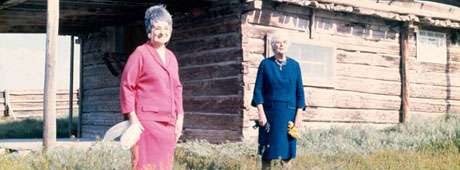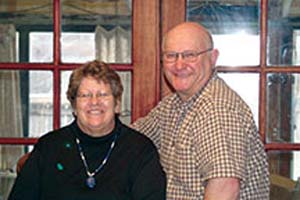No products in the cart.
Spotlight–Hansen

Overlooked, at First
By Shirley Metts
In the fall of 1967, when I was fourteen, my parents moved our family from the Northside Tract at Rupert to Hazelton, within fifteen miles of Hansen. Even so, I grew up knowing very little about the town. This situation continued until I married in 1974, when we moved from Twin Falls to Kimberly, just four miles west of Hansen, and became very good friends with several Hansen residents. In spring of 1976, I went to work at the Hansen School District for about six months and learned more about the place. Forty years later, we still have friends who live there. Two of them were Hans and Martha Ross, both now deceased, who were wonderful people and pioneers in the area.
City clerk Linda Morrill describes sleepy little Hansen as a bedroom community of Twin Falls, which is about seven miles west on Highway 30, an easy commute yet far enough away for Hansen to be laid-back from the hustle and bustle of the larger city. Hansen’s current population of 1,160 has an elementary and junior/senior high school, a great public library, city offices, a café, post office, bar, grain elevators, a fiberglass machine shop, a fire station, and a store that is undergoing refurbishment. A community hall can be rented for weddings, parties, and other events.
The first thing that catches your attention after you pass the gaudy “Garden of Eden” truck stop at the I-84 exit to Hansen is the beauty of the crossing over the Snake River Canyon. In the town’s early days, the first bridge at this spot was the only connection between Hansen on the south side of the river and the farming areas of Eden and Hazelton on the north side. Before it was completed in 1919, the only way to cross the sixteen-mile-long river gorge was in a rowboat. The suspension bridge was held up by fourteen cables that were more than nine hundred feet long. It had two rows of wooden planks, which drivers were supposed to keep their tires on. It was wide enough for only one vehicle to travel at a time. If two vehicles met on the bridge, one would have to back up. My friend Harold Waggoner remembers driving a combine across that bridge and having to back up for another vehicle coming toward him. My dad liked to say it was a two-way bridge, one way going north and the other south—just not at the same time.
This content is available for purchase. Please select from available options.
Purchase Only
Purchase Only

